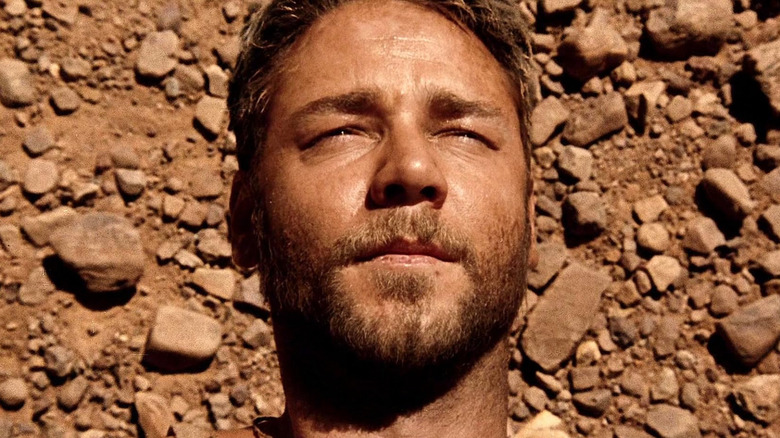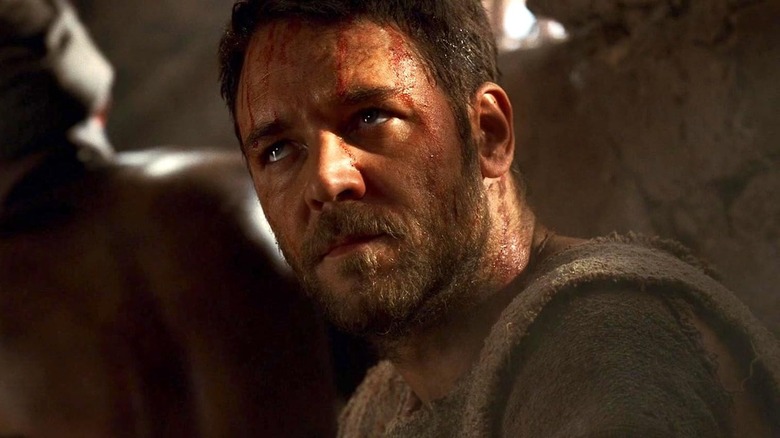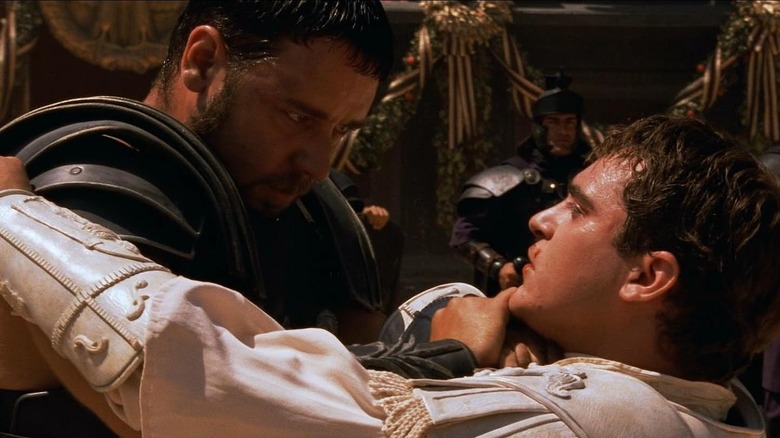At the end of Ridley Scott’s 2000 peplum film “Gladiator,” the general-turned-gladiator Maximus (Russell Crowe) is forced to fight the corrupt emperor Commodus (Joaquin Phoenix) in the arena. Commodus is wickd and terrible and stabs Maximus before the fight even begins. Despite the injury, Maximus overwhelms Commodus and stabs him in the neck. With his dying breaths, Commodus calls out for political reforms and urges that all imprisoned gladiators be released. Maximus then passes into the afterlife where he is reunited with his dead wife and son. It’s a corny ending to a sluggish, muddy movie, but it was effective enough to net “Gladiator” $451.7 million at the worldwide box office. I heard it also won some awards.
Scott’s “Gladiator II” is due in theaters this fall. This new film is set 20 years after the events of the first movie, and is all about the character named Lucius Verus (Paul Mescal), a boy in the original film, having his own gladiatorial dramas. Derek Jacobi and Connie Nielsen will reprise their respective roles, connecting the new film to the last, and it will feature the amazing Denzel Washington as an ambitious would-be emperor named Macrinus.
“Gladiator II” is one of those sequels that went through many, many iterations as it stewed in development hell for decades. There was talk of a “Gladiator II” as long ago as 2001, when John Logan wrote a screenplay that included both sequel and prequel elements. That script was eventually dropped and bizarre mutations began to overwhelm the film’s story. Crowe liked the notion of Maximus supernaturally coming back from the dead, so Scott pursued that angle for a while. Indeed, Scott talked about his idea for a supernatural sequel to “Gladiator” in the most recent issue of Empire Magazine.
Gladiator: Back from the Dead
Although Maximus had died, both Crowe and Scott felt that resurrecting him would be the best way to get a sequel made. In Scott’s original vision, dating to about 2006, “Gladiator II” would begin with Maximus, along with thousands of others, standing along the shore of the River Styx, waiting for the boatman Charon to carry them into the afterlife. This was to be a spiritual epic, not an historical one. Scott liked his ideas, and recalled them with enthusiasm. As he recounted to Empire:
“I had this one good idea, a very comic-strippy idea. I’m very much a comic-strip kind of person. I thought, if we find in bloodshed and war that a dying warrior becomes the portal for Maximus to come back from the dead, how about that? […] I don’t mean he comes back through his mouth, but I’d devise a way to bring him back from the dead. […] But that didn’t go down too well with the nobs. They thought it was ridiculous.”
A nob, for any non-British readers, is a slang term for a wealthy person. Scott is referring to the producers and investors of “Gladiator II.” It seems that no one liked the hard pivot of “Gladiator” from history to fantasy, and the script never manifested. As recently as 2017, Scott was still carrying on about the potential resurrection of Maximus. In a 2017 interview with Entertainment Weekly, Scott talked about how he had cracked the code on how to bring Maximus back. That phrase, of course, is very cryptic, and could very well refer to the events of the “Gladiator II” that audiences will see in a few months.
Gladiator: Christ Killer
The most exciting unmade version of “Gladiator II,” however, came from, of all people, Nick Cave. It seems that Cave and Crowe met during the making of the 2005 Australian Western “The Proposition,” starring Guy Pearce, and began spitballing ideas for a “Gladiator” sequel. Cave pitched his ideas and Crowe reportedly commissioned a screenplay from the Bad Seed. The result was a history-spanning, vampire-like story about how Maximus, returned from the dead, found himself in a position where he had to hunt and murder Jesus Christ.
The story began, like in Scott’s version, in purgatory. Maximus, now having direct access to the gods, discovers that their influence over the world is waning because of a lack of worship. It seems that the Apostles of Jesus Christ have set up Christian churches, and they are starting to grow in favor among the people. The Roman gods are distressed and resurrect Maximus to serve as their timeless servant. They send him back in time to kill Christ (the first “Gladiator” is set in AD 180), and then all his followers. Maximus is cursed with immortality, however, and lives for thousands of years, fighting as a soldier in the Crusades, in World War II, and all the way through the Vietnam War. Cave’s film would have ended in the present day with Maximus as a general at the Pentagon.
The script, while ambitious, was too weird for most studios and it was never made. Indeed, no one seemed to like the idea of making “Gladiator II” supernatural. The idea of involving the gods would have been in keeping with a lot of ancient Greek tales, but it didn’t match the Roman history of Scott’s first film.
The version of “Gladiator II” we’ll be getting will not, at least as far as we know, feature the resurrection of Maximus, but instead take the form of an intergenerational story. We’ll see what it has to offer when the film hits theaters on November 22, 2024.





